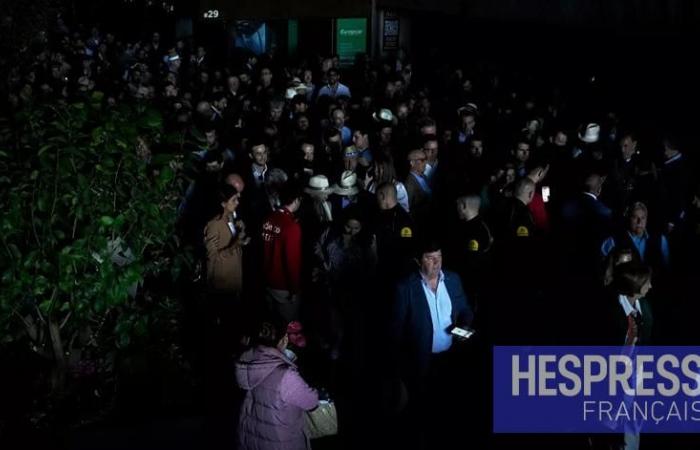During the presentation of its financial results in February 2024, the company Redeia – parent company of the manager of the Spanish electricity network Red Eléctrica Española (REE) had alerted to potential risks of “production cuts” linked to the high integration of renewable energies in the Spanish energy mix. A dilemma faced by Morocco, in full energy transition, what future for the country and how to escape these disturbances?
The electric blackout sowed the shock, but who would have imagined that it could be linked to renewable energies? It is however a hypothesis envisaged by a recent report of the REE. This alert highlighted an increasing imbalance between the rise of renewables and the capacity of the network to absorb these variable flows, in particular in the absence of adequate technical infrastructures.
Redeem the open que “This dynamic could generate, in the short and medium term, severe disturbances in the supply of electricity, in particular due to the intermittent of green sources (solar, wind), combined with the gradual closure of conventional power stations (nuclear, gas, coal)”The report also underlined the appearance of new vulnerabilities, such as the increased risk of computer attacks targeting energy systems, which could impact network stability on the Iberian scale.
However, Beatriz Cordor, president of Redeia, wanted to qualify these concerns in an interview on Cadena ser. According to her, he is ” fair To link the giant breakdown recently in the Iberian peninsula to the growth of renewable energies. She recalled that the latter “ work safely and stable “, And that the financial report only enumerated potential risks required by legislation.
“Renewable energies work stable, they already have mechanisms that allow them to operate practically” like nature technologies “Conventional”she added.
On 380 pages, Redeia, in a report published last February, pointed out in particular two problems linked to the energy transition: the presence of smaller electrical installations, with lower adaptation capacities, and the impact of the closure of power plants “Conventional” (gas, coal, nuclear). There “Loss of firm production” linked to the closure of these power plants could lead to “A greater difficulty in the exploitation of the system, an increase in limitations to production and technical restrictions, as well as a possible damage to supply”she wrote.
The Spanish network manager also mentioned the “Risk of attack or incident affecting computer systems”susceptible d’“Allow both the electrical supply” of Spain and“Traveling reputational costs and damage” For Redeia. Several scenarios have been supposed To explain the breakdown, which upset the daily life of the Spanish, Portuguese and Moroccans in a minimal portion, including a possible cyber attack. This last hypothesis was however dismissed by Ree, which ensures that the precise origin of the failure is still not known.
This Spanish situation resonates particularly in a regional context, while Morocco is resolutely committed to its own energy transition. The kingdom aims to bring the share of renewable energies to more than 52 % of its installed capacity by 2030. This orientation towards a greener energy mix is accompanied by challenges similar to those mentioned in Spain: security of networks, modernization of infrastructure, and fine management of the intermittent of renewable sources.
Thus, in Europe or Africa, the energy transition is an impose on a strategic necessity, but above all a major technical and institutional challenge. How to remedy it? Take the risk or not? Business to follow …








